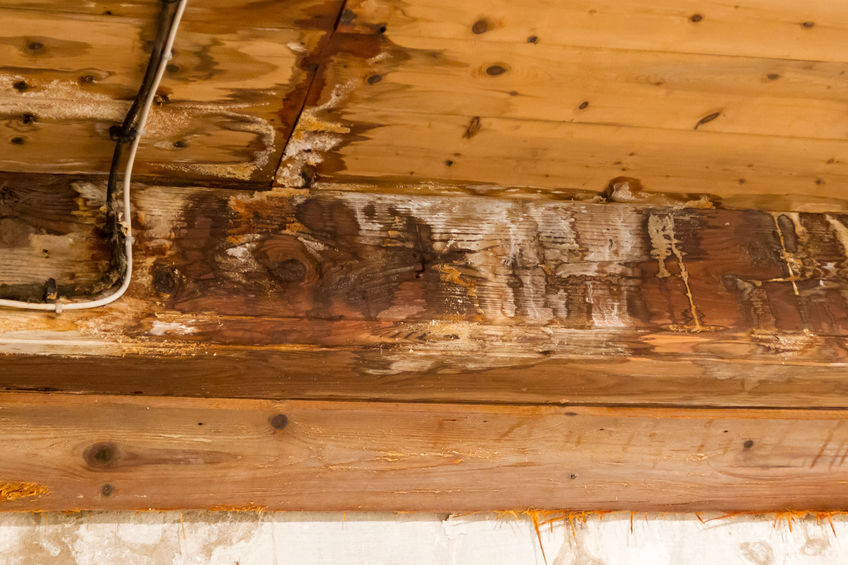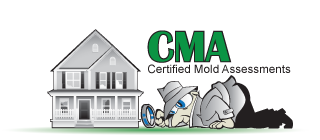 Mold not only looks bad but can also be harmful to your health when you are exposed to its spores. It can appear in many forms and grows in areas that experience constant moisture and high levels of humidity. For instance, you may notice some white patches on your floor, slimy black spots on your shower curtain or a slick orange film on your kitchen drain. Regardless of the appearance, mold can make you sick especially if you have a low immune system or suffering from asthma and allergies. People who are very sensitive to mold can experience allergic reactions when they accidentally inhale the spores or when it encounters their skin. This article looks at how to know if you have mold poisoning.
Mold not only looks bad but can also be harmful to your health when you are exposed to its spores. It can appear in many forms and grows in areas that experience constant moisture and high levels of humidity. For instance, you may notice some white patches on your floor, slimy black spots on your shower curtain or a slick orange film on your kitchen drain. Regardless of the appearance, mold can make you sick especially if you have a low immune system or suffering from asthma and allergies. People who are very sensitive to mold can experience allergic reactions when they accidentally inhale the spores or when it encounters their skin. This article looks at how to know if you have mold poisoning.
- Allergic Reactions to Mold
The longer you are exposed to mold, the more your body will be sensitive to it causing severe allergic reactions. When you inhale or ingest mold spores, your immune system defense will react against the foreign particles through sneezing, wheezing, or coughing. The more you are exposed, you tend to develop other symptoms such as shortness of breath, itchy skin, watery eyes, and persistent irritation along your respiratory tract.
Asthmatic people may experience frequent asthma attacks whenever they are exposed to mold. These symptoms are always noticeable when walking into your home after a long vacation or spending time in a room that is infested with molds. It is important to seek medical help once you notice any of these symptoms, as they may get worse over time.
- Physical Examination
A medical professional such as a doctor or an allergist can perform a few tests on to identify whether you exhibit any symptoms of mold poisoning. Apart from describing all your symptoms to the doctor, he or she may check for visible physical symptoms such as watery eyes, red or itchy skin, and flu-like symptoms that affect the respiratory tract. During the physical examination, your doctor may ask you about your medical history to assess your level of immunity and severity of prolonged exposure to mold.
- Blood Tests
Another way to know if you have mold poisoning is by taking blood tests. Your doctor may take a sample of your blood to examine the presence of mold antibodies. One of the common types of the blood test used for mold symptoms is known as Memory Lymphocyte Immunostimulation Assay, which is abbreviated as MELISA. The MELISA test is used to detect allergies to molds, toxins, and chemicals such as Penicillium and Aspergillus.
Mold poisoning is detected by applying allergens to the sample and observing for a heightened reaction. It is important to know that this type of blood test does not measure the number of mold toxins in an individual. It only helps doctors determine whether you have an allergic reaction to that type of mold. Other similar types of blood tests include the Radioallergosorbent (RAST) test and Enzyme-Linked Immunosorbent Assay (ELISA).
- Skin Tests
The mold that encounters your skin can make you feel itchy or may cause rashes to appear on different areas on your body. The test is done by a doctor where tiny drops of purified mold allergens are inserted into the surface of your skin. The doctor or allergist will observe the reaction and draw a conclusion based on their results. Skin tests are known to be more reliable than blood tests. However, both of them have their downsides since neither of the tests can detect allergies caused by every mold species since the purified mold allergens available for allergy tests are extracted from a limited number of mold species.
How is Mold Poisoning Treated?
Treatment for mold exposure and allergies may involve the use of nasal sprays or rinses, allergy shots, over the counter drugs, and oral medication. Nasal corticosteroids and over-the-counter medications help to reduce inflammation caused by mold allergies along the airways. You may also be given oral medications to reduce the amount of mucus in your airways. Your doctor may recommend getting frequent shots to boost your body’s immune system over time.
It is important to seek immediate medical attention once you notice any symptoms of mold poisoning since prolonged exposure to mold can cause severe health problems. The best treatment for mold is to avoid being exposed to mold spores as much as possible. It is also important to have professional mold remediation in your home as it ensures your home is safe and healthy for you and your family.
